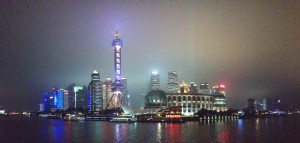Hello everyone! I haven’t made a post in awhile, but I just couldn’t think of what to write about until now. For one, I just realized that there’s only two weeks left in the program. I can’t believe it! I just keep thinking that I have more time here than I actually do…..One friend left last week to start her internship back in the States and it just keeps reminding me that my friends and I will soon be heading our separate ways. As we said earlier today:
“Guys, it’s already June 1st….”
“Shhhh we don’t talk about that.”
We keep thinking we’re heading to the same part of the U.S., but in reality we’ll be traveling back to different states.
Since I’m not leaving just yet, I can talk about my last thoughts of the program in another post. For now, let’s continue with the original purpose of writing this.
So what’s with the title?
One thing that I’ve gotten used to since I’ve been here has been people assuming I am Chinese. What I mean by this, is that people think I am a native Chinese person and not a foreigner. Often during the semester, people would come up to me and ask how to get to certain places on campus. This made me start to think about whether or not I came across as a foreigner. Later, during spring break, my friends and I decided to travel to Beijing and Xi’an, and here is where I was asked (many times) a question similar to the one in the title of this blog post. Usually the conversation went like this:
“Where are you from?”
“America!”
“Really? You look Chinese. Your face looks Chinese.”
“I know, but I’m American.”
“Oh. Well, what about your parents?”
“They’re both American.”
“Really?”
Here is where I would say, “我是华人。“ (华人=huá rén=someone who is ethnically Chinese) When I say this, the person that I’m talking to would understand that I am trying to explain I am a Chinese person but not Chinese. Since Shanghai is a very international city, the people there are used to seeing people from all over and I grew accustomed to people not being curious about where I am from. I didn’t realize that when I would go to cities such as Beijing and Xi’an, which aren’t as international as Shanghai, I would get asked this question almost everywhere I went. People were confused because I look Chinese, but I’m American.
Honestly, I find it interesting that some people really think that I am Chinese local since there are others who can pick me out as the foreigner. It still baffles me, even though I’ve already spent thirteen weeks here. This experience actually made me think about what it means to be Chinese-American and how I view myself. For example, what it means to be Chinese but grow up in a place as diverse as America. And then because of this, and because I didn’t grow up surrounded by a lot of Chinese culture, led me to sometimes forgetting that I am Chinese. Then, coming to China and having these experiences has changed the way I view things, and has challenged what I’m used to thinking. My friend, Melanie, phrased this feeling so well:
“How come you look like us but you cannot speak Chinese?
It’s frustrating at times because it forces me to reflect on my experiences, who I am, where I come from. What does it mean that I am Chinese, yet I grew up in America — where all the people I ever see on TV are white, where most of the music I listen to is sung by white males, where when my brother and I were little we thought we were white too? Looking back, I realize how much surroundings and environment influence how you see the world and how you
see yourself in relation to the world.” (https://newhive.com/meowlanie/-part-one)
So how do you see yourself in relation to the world? I’ll leave you to ponder a bit with this picture of The Bund I took last Thursday. Until next time!


